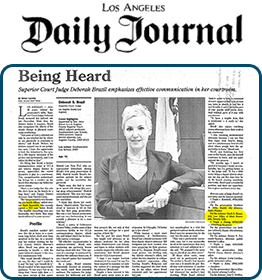The Population of This Age Group Is Increasing
The 60-years-and-older age group of drivers is the fastest growing group for a couple of reasons. One is that the segment of the population that’s 60 and over is growing just because of the population curve and baby boomers as well as older people living even longer. We now see people living to 80 years old, 90 years old or even 100 years old and it’s not unusual to see people even in their 90s who are still driving and still driving well.
The 60-Years-and-Older Age Group of Drivers Receive Alcohol-Related and Drug-Related DUIs, Often a Combination of Low Levels of Alcohol and Drugs
We start to see in the 60 years and above population not only DUI alcohol charges but also DUI drug charges, which could be attributed to prescription drugs, legal or illegal drugs. In the 60 and above group it’s often a hybrid where we see low levels of alcohol and medication.
The Drivers 60-Years-and-Older Are Subject to the Automatic DMV-Issued Suspension for Not Requesting the Hearing within 10 Days
This medication can affect somebody’s ability to drive and we see a big push with the prosecutors, district attorneys and city attorneys trying to get convictions for DUI and DUID, which would be DUI drugs. We have the same rules when there is alcohol at a 0.08 or above with the Department of Motor Vehicles so we still need to move quickly within the 10 days to avoid a suspension of the driver’s license if we don’t demand that hearing within that time period.
Retaining an Attorney at the Start of the Case Is Always Advantageous
According to penal code 9778, we still have the right to appear in court for our clients so someone who is accused of a normal driving under the influence case does not have to go to court themselves. They can have their attorney go to court for them.
The most important time-sensitive issue is applying to the DMV within 10 days to stop the automatic suspension. It’s important for people to know that an attorney can go to court for them and represent them through the whole process without them having to make the trips down to the courthouse.
Field Sobriety Tests Should Not Be Administered to Drivers 60 Years or Older
When we look at people who are 60 and above, we will see DUI investigations – either for DUI alcohol or DUI drugs – where field sobriety tests are done. Field sobriety tests, whether they’re standard field sobriety tests or non-standardized field sobriety tests, are oftentimes worthless when dealing with someone who is 60 or above.
When field sobriety tests were originally designed, they were not designed for people who are 60 years old or those above that age. They were not designed for the person overweight by 50 pounds or more because there are certain physical limitations. We would expect to see certain problems during these roadside athletic activities for somebody of 60 or above, whether they have alcohol or drugs in their system or not.
Drivers 60-Years-and-Older May Have Difficulty Giving a Breath Sample
We also will see problems with the 60-and-older group when we deal with breath testing because breath testing works on averages and requires a certain volume of air. Many times, particularly if we’re dealing with women who are 60 and above, we find the inability to complete a breath test.
There is just not enough strength and lung volume to complete breath tests. We will often see refusal allegations when we’re dealing with somebody who is 60 or above.
Blood Testing Is Preferable and Defensible
The breath testing is not consistent, and it’s not trustworthy. The blood testing that’s done is often considered a gold standard for the 60-years-and-older group of drivers. With the blood testing it can be tested for alcohol and/or drugs, and it can be screened as a preliminary test or for a quantitative test which is a specific numeric value.
That is the key to defending the 60-years-and-older age group’s DUI drugs cases. Typically, in order to prove drugs are present, they need to have a blood test or a urine test and they need to show what the actual levels were and then try to establish what the levels were at the time of driving, which can be very difficult.
Cases with 60-Years-and-Older Drivers May Be Difficult to Prosecute
While there is a huge group of people who are being detained and arrested for driving under the influence at 60 years old or above with alcohol or with drugs or a combination of both, it can be very difficult for a district attorney to get a conviction when the cases are properly defended.
The real question is about what the person’s driving was like. Was the driver operating the vehicle similarly to a sober person? That’s going to be the key question for somebody who is 60 or above. With low levels of alcohol and therapeutic levels of drugs in their system, they should not be convicted of DUI or DUI drugs.






 Personal Attention
Personal Attention Every criminal case is unique and no attorney can guarantee the outcome of a case. The information on this site is legal advertising and for general information only. Using this site, requesting books, information, consultations or communicating with Attorney Rosenfeld through its site does not form an attorney/client relationship.
Every criminal case is unique and no attorney can guarantee the outcome of a case. The information on this site is legal advertising and for general information only. Using this site, requesting books, information, consultations or communicating with Attorney Rosenfeld through its site does not form an attorney/client relationship.








